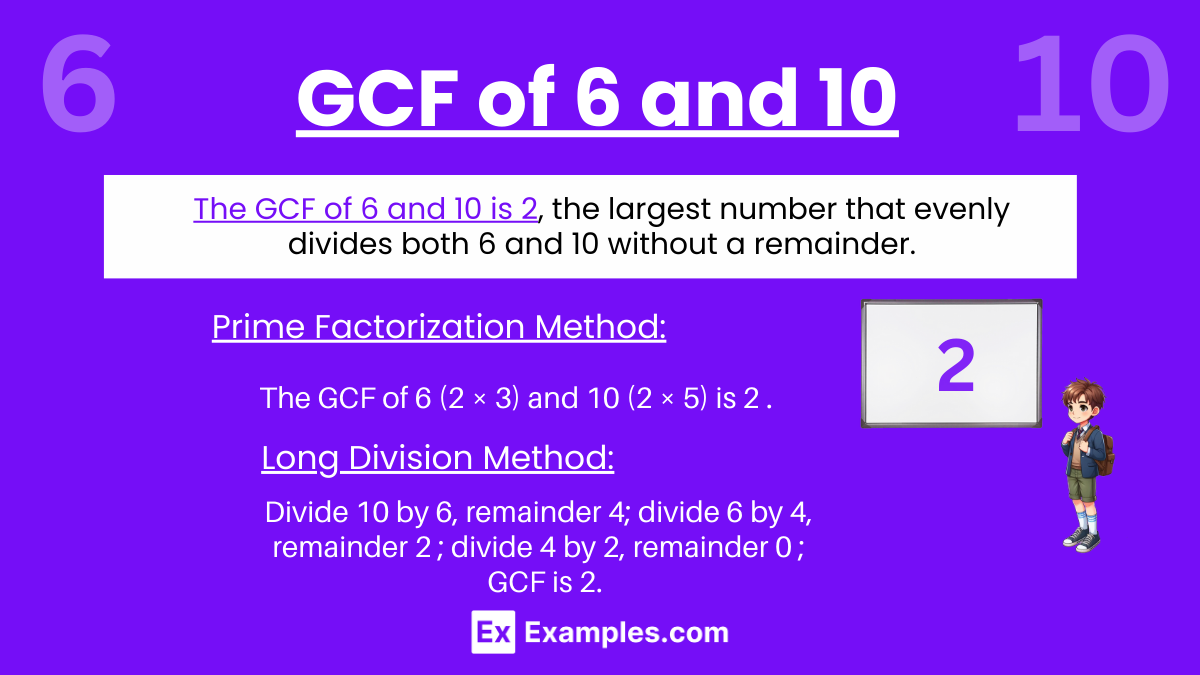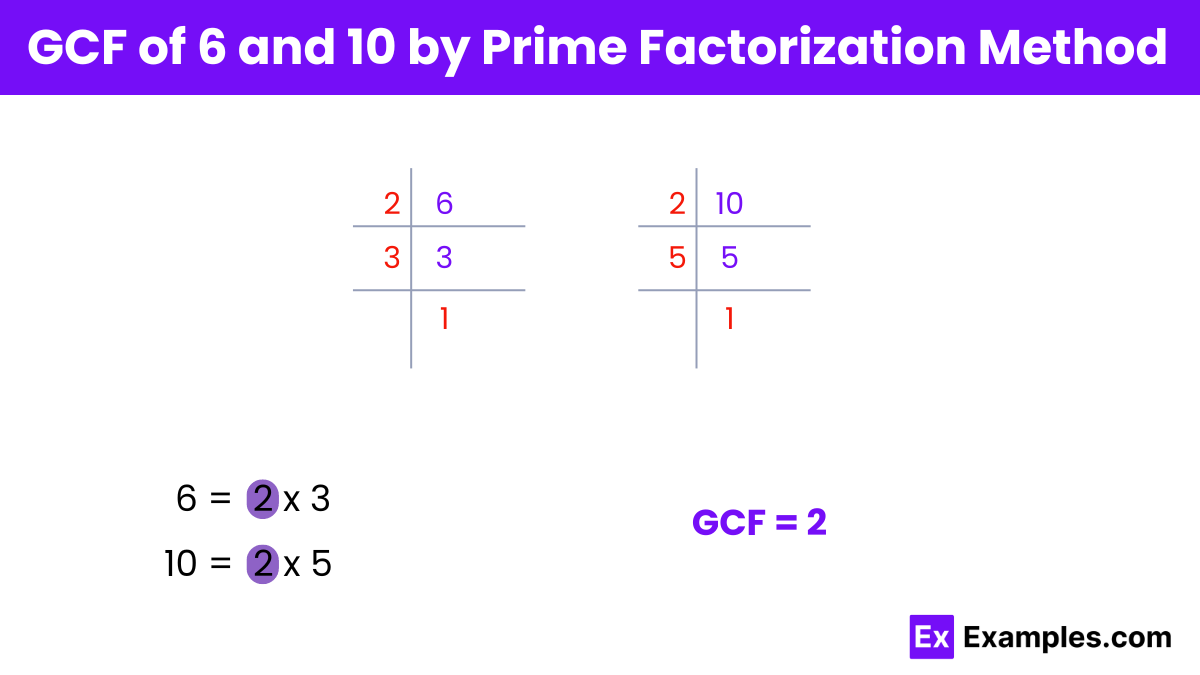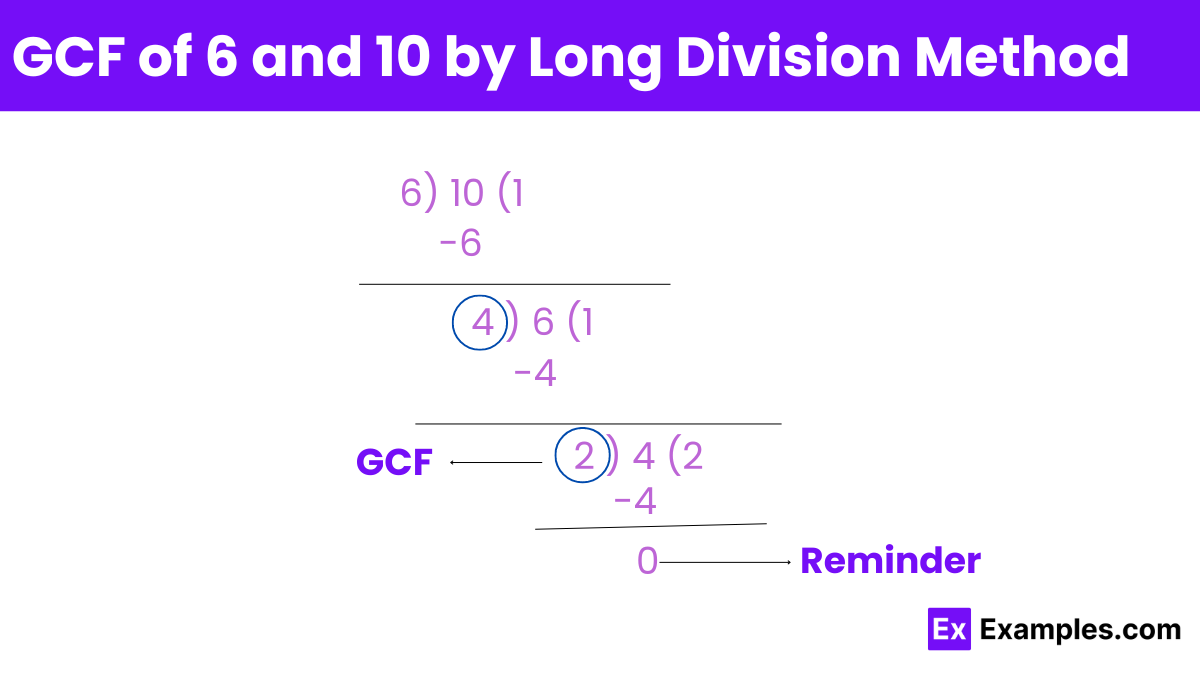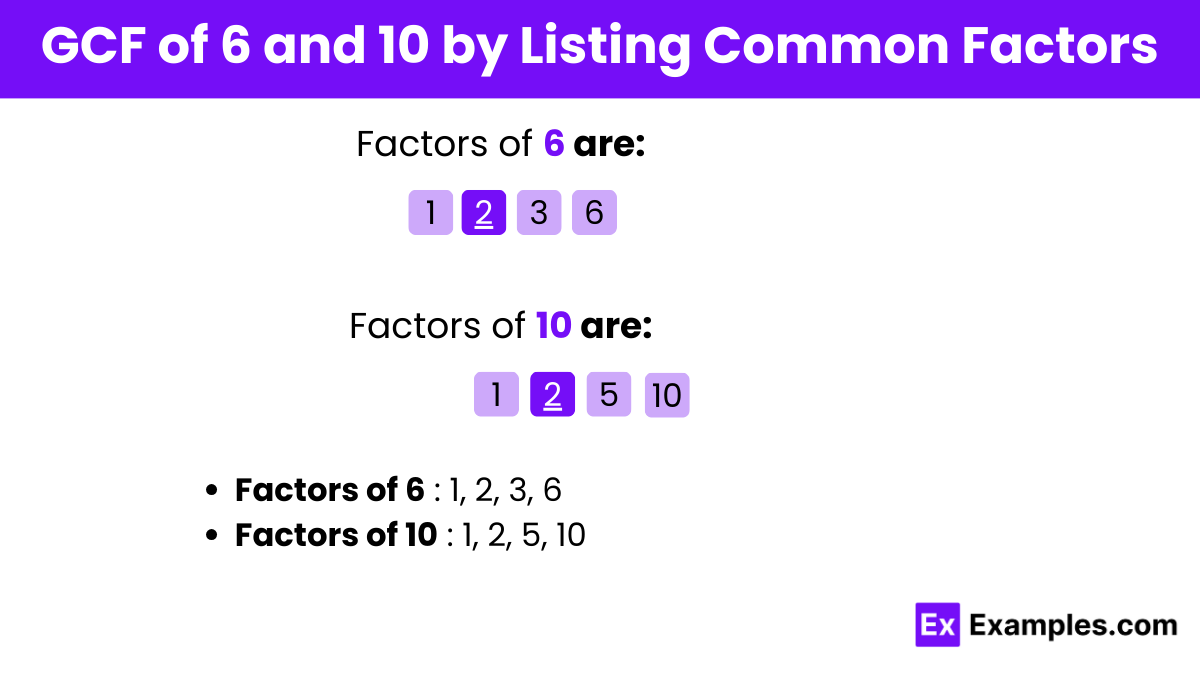What is the GCF of 6 and 10?
1
2
3
5


To find the GCF of 6 and 10, you can use several methods. One way is by listing the factors: the factors of 6 are 1, 2, 3, and 6, while the factors of 10 are 1, 2, 5, and 10. The common factors are 1 and 2, so the GCF is 2. Another method is the Euclidean algorithm, where you repeatedly divide and take remainders: 10 ÷ 6 is 1 with a remainder of 4, then 6 ÷ 4 is 1 with a remainder of 2, and finally 4 ÷ 2 is 2 with a remainder of 0, confirming the GCF is 2. Prime factorization also works: 6 is 2 × 3, and 10 is 2 × 5; the only common prime factor is 2, so the GCF is 2.

To find the Greatest Common Factor (GCF) of 6 and 10 using the prime factorization method, follow these steps:
Prime factorization of 6:
6 = 2 × 3
Prime factorization of 10:
10 = 2 × 5
Since the only common prime factor is 2, the GCF is 2.

To find the Greatest Common Factor (GCF) of 6 and 10 using the long division method, follow these steps:
10 ÷ 6 = 1 with a remainder of 4.
Now, we have 6 and 4.
6 ÷ 4 = 1 with a remainder of 2.
4 ÷ 2 = 2 with a remainder of 0.
The last non-zero remainder is 2. So, the GCF of 6 and 10 is 2.

To find the Greatest Common Factor (GCF) of 6 and 10 by listing common factors, follow these steps:
Factors of 6:
Factors of 10:
Common factors of 6 and 10:
The largest common factor is 2. Therefore, the GCF of 6 and 10 is 2.
No, 2 is the greatest common factor of 6 and 10.
Yes, simplifying 6/10 using the GCF of 2 gives 3/5.
Yes, many online tools and calculators can quickly find the GCF.
It helps in tasks such as sharing resources and organizing items into groups.
Begin by dividing the larger numbers (10) by the smaller number (6).
The GCF is used to divide the numerator and denominator to simplify fractions.
Text prompt
Add Tone
10 Examples of Public speaking
20 Examples of Gas lighting
What is the GCF of 6 and 10?
1
2
3
5
Which of the following is a common factor of both 6 and 10?
4
5
6
2
How many factors does the GCF of 6 and 10 have?
1
2
3
4
Which number is the greatest common factor of 6 and 10?
1
2
3
5
What is the smallest prime factor of the GCF of 6 and 10?
2
3
5
7
Which pair of numbers has the same GCF as 6 and 10?
8 and 12
9 and 15
14 and 20
18 and 24
The GCF of 6 and 10 is also a factor of which of the following numbers?
12
15
20
25
What is the result of dividing the GCF of 6 and 10 by 2?
1
2
3
4
The GCF of 6 and 10 is subtracted from 6. What is the result?
1
2
3
4
Which of the following numbers is not divisible by the GCF of 6 and 10?
12
18
20
25
Before you leave, take our quick quiz to enhance your learning!

